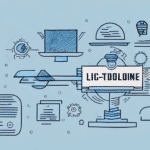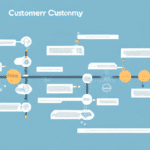Importance of Quality Customer Service
In today's highly competitive business landscape, quality customer service is a pivotal element for achieving success. Customer satisfaction forms the foundation upon which companies build their reputation and foster customer loyalty. Satisfied customers are more likely to make repeat purchases, recommend the business to others, and remain loyal over time. According to a study by Qualtrics, businesses that prioritize customer service experience a 20% increase in customer retention.
Essential for Business Success
Quality customer service facilitates customer satisfaction and loyalty, which are essential for business growth. A good reputation for excellent customer service serves as a valuable marketing tool, differentiating a business from its competitors.
Impact on Customer Retention
Excellent customer service significantly impacts customer retention rates. Research by Customer Contact Week indicates that 73% of consumers point to customer service as a key factor in their loyalty to a brand. Positive customer experiences lead to repeat business and organic growth through word-of-mouth referrals.
Strategies for Delivering Exceptional Customer Service
Hiring and Training Employees
Employing staff with strong customer service skills is fundamental. Regular training programs focused on communication, problem-solving, and empathy can enhance the effectiveness of customer interactions.
Listening to Customer Feedback
Collecting and acting upon customer feedback allows businesses to identify areas for improvement. Tools like surveys and feedback forms can provide valuable insights into customer needs and expectations.
Providing Personalized Attention
Personalizing customer interactions can significantly improve satisfaction. By leveraging customer data, businesses can tailor their services to meet individual preferences, making customers feel valued and understood.
Leveraging Technology
Implementing advanced technologies such as customer relationship management (CRM) systems, chatbots, and automated support can streamline customer service processes. These tools enable faster response times and more efficient handling of customer inquiries.
Building a Customer-Centric Culture
Best Practices
A customer-centric culture involves prioritizing customer needs in all aspects of the business. This can be achieved by fostering open communication, encouraging employee empowerment, and maintaining a focus on continuous improvement.
Empowering Employees
Empowering employees to make decisions that benefit the customer leads to more effective problem resolution and enhances the overall customer experience. Providing employees with the authority and resources to address customer issues fosters a sense of ownership and accountability.
Role of Technology in Enhancing Customer Service
Chatbots and Automation
Chatbots provide instant responses to customer inquiries, ensuring that support is available 24/7. Automation can handle routine tasks, freeing up human agents to focus on more complex issues.
Customer Relationship Management (CRM) Systems
CRM systems help businesses track customer interactions, preferences, and history, enabling more personalized and efficient service. Tools like Salesforce offer robust CRM solutions that enhance customer relationship management.
Data Analytics
Data analytics tools can analyze customer behavior and feedback, identifying trends and areas for improvement. This data-driven approach allows businesses to make informed decisions that enhance the customer experience.
Measuring Customer Service Effectiveness
Key Metrics
Monitoring metrics such as customer satisfaction scores (CSAT), customer retention rates, and average response time is essential for assessing the effectiveness of customer service strategies.
Net Promoter Score (NPS)
The Net Promoter Score (NPS) measures customer loyalty by asking customers how likely they are to recommend a business to others. A high NPS indicates strong customer satisfaction and loyalty. For more information on NPS, visit Net Promoter.
Common Mistakes and How to Avoid Them
Delayed Responses
Failing to respond promptly to customer inquiries can lead to dissatisfaction. Implementing efficient response systems ensures that customer queries are addressed in a timely manner.
Ignoring Customer Feedback
Not listening to or acting upon customer feedback can create frustration and lead to lost business. Regularly soliciting and reviewing feedback helps businesses stay aligned with customer needs.
Lack of Personalization
Providing generic responses and treating customers as numbers rather than individuals can diminish the customer experience. Personalized interactions foster stronger customer relationships.
Future Trends in Customer Service
Artificial Intelligence and Virtual Reality
Emerging technologies like artificial intelligence (AI) and virtual reality (VR) are poised to revolutionize customer service. AI-powered solutions can offer more intuitive and efficient support, while VR can provide immersive customer experiences.
Integrated Customer Service Delivery
The future of customer service involves an integrated approach, combining multiple channels and technologies to provide a seamless and cohesive customer experience.
Conclusion
Quality customer service is a crucial element for achieving business success in today's competitive market. By investing in excellent customer service delivery, businesses can achieve customer satisfaction, retain their customers, and gain new ones. Adopting various strategies such as building a customer-centric culture, utilizing technology, and delivering personalized customer service can help businesses deliver exceptional customer experiences.




















